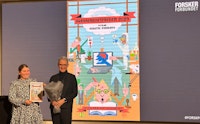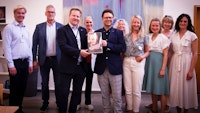Field of study: Music Therapy
Kjersti Johansson: Repetition in music therapy

The project explores the phenomenon of repetition in individual music therapy.
Summary
The practice of music therapy is abundant with repetitions. We repeat songs, rhythms, bodily actions and verbal phrases. Repetitions may take place within a single session, or they may span over longer periods. Repetitions may also be understood in quite different ways: in a positive understanding, repetition is associated with concepts of safety, such as predictability and stability. In a negative understanding, it may be linked to compulsive behaviours or feelings of boredom. An understanding of repetition should be central to music therapy, and yet, in the discipline of music therapy, the phenomenon of repetition is seldom described in depth. There seems to be a need to elaborate, nuance and verbalize our understanding of this central phenomenon, and this is the primary objective of this PhD project.
The research question
The research question posed in the study is: What does repetition in music therapy entail?
This question is further specified by two sub-questions, asking what functions repetitions may have in music therapy practice, and what characterizes positive and negative music therapy repetitions. These questions are explored across various contexts, in a qualitative instrumental multiple case study.
The study consists of three cases and includes music therapy with an elderly person with dementia, a child with autism and with an adult person with a schizophrenia-like disorder. The empirical material comprises video recordings of music therapy sessions and interviews with the music therapists involved. Each case is analysed separately, and the study concludes with a cross-case analysis.
Findings
Findings show how repetition builds structure and a frame, across and within sessions. Such repetition creates explicitness and predictability, which may promote comprehensibility, participation and spontaneity. It may build continuity, a sense of coherence and feelings of safety. Repetitions may also facilitate playfulness, humour and joy. However, repetitions are not solely concerned with such positive aspects. The study also examines how repetitions may be or become rigid. Further, repetitions may be experienced as a straightjacket or they can promote feelings of boredom.
The dissertation
Full title (translated from Norwegian): Repetition in music therapy—a qualitative instrumental multiple case study.
The dissertation is a monograph, and it is available in NMH's digital archive (nva.sikt.no)
The dissertation is written in Norwegian.
Articles relevant
Published: Jan 30, 2015 — Last updated: Dec 18, 2025



